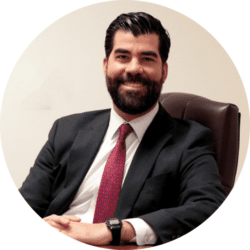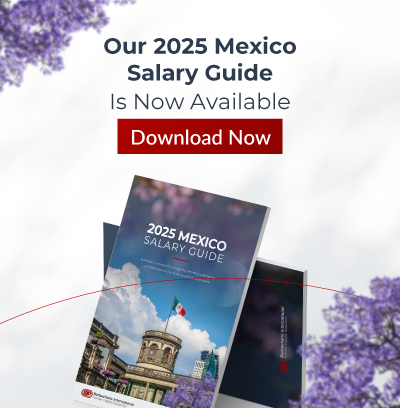
Reaching the final round of interviews is both an achievement and a pressure point. You’ve already demonstrated technical ability, leadership credibility, and alignment with the organization’s needs. Yet, when you’re among a small pool of finalists, the differentiators are no longer about your resume; they’re about how you carry yourself, connect with decision makers, and prove you are the leader they can trust.
Many executives stumble at this stage, not because they lack qualifications, but because they underestimate what is really being tested. Final interviews often shift from measuring competence to evaluating presence, adaptability, and cultural contribution. Here’s what executives should know to stand out when the stakes are highest.
Show More Than Competence, Show Confidence Without Ego
By the final interview, the assumption is that every candidate can do the job. The panel is no longer asking “Can they deliver?” but “How will they lead here?” Organizations want to see confidence balanced with humility. If you come across as over-rehearsed or self-congratulatory, you risk signaling a leadership style that could alienate others.
Confidence in this stage looks like clarity and presence. Speak directly about the outcomes you’ve achieved and the teams you’ve guided, but connect those results to the organization’s future, not just your past wins. A leadership analysis from Welcome to the Jungle emphasizes that the leaders who inspire trust are those who project confidence without slipping into arrogance, creating space for collaboration rather than intimidation.
Anticipate Culture Questions And Prove You’re a Fit
When it comes down to finalists, culture fit, or more accurately, culture contribution, often tips the balance. Executives are expected to adapt to the company’s values while also strengthening them.
Expect to be asked about how you’ve built teams, how you’ve handled conflict, and how you’ve sustained motivation during difficult transitions. These aren’t casual questions; they’re the organization’s way of imagining you inside their culture. Deloitte’s analysis of succession planning notes that at least 30 percent of newly hired executives fail in their first 18 months, largely due to poor culture fit, which is why culture contribution often decides final-round outcomes.
Practical tip: share specific, recent examples of how you reinforced company values or created alignment between business goals and employee engagement. Avoid vague answers like “I value teamwork.” Instead, show them when you made values come alive in a measurable way.
Prepare for the Subtext
Final interviews often involve subtle dynamics that go beyond the structured questions. Executives may face scenarios like:
- A board member asking broad, philosophical questions about leadership.
- A CEO testing whether you can think strategically under pressure.
- A peer-level executive probing how collaborative or competitive you might be.
What’s being evaluated is not just your answer, but your adaptability. Can you switch from tactical to visionary thinking? Can you adjust your tone when speaking with the board versus future colleagues? This adaptability is what sets finalists apart.
Align With the Company’s Strategic Future
By the time you’re in the final round, you should have a detailed understanding of the company’s strategy, challenges, and industry context. If you’re vague about where the organization is headed, you’ll seem like a candidate still on the outside.
Executives who stand out are those who connect their own vision to the company’s trajectory. For example, in global and cross-border roles where our firm frequently partners with clients, the leaders who succeed in final interviews are the ones who can speak not only about operational efficiency, but also about how to position talent strategy for cross-border growth.
If you’ve done your homework, this is the moment to articulate:
- How you would strengthen the company’s competitive edge.
- What risks you see in the next 12–24 months.
- Where you believe the biggest leadership opportunities exist.
This isn’t about giving away a full plan; it’s about proving you’re already thinking like an insider.
Manage Energy and Connection
The final round is not just an intellectual test; it’s also an endurance test. Some executives face back-to-back panels, full-day interviews, or meals with senior leadership. What companies are watching is how consistently you show up.
Do you engage with the same energy in the last meeting of the day as in the first? Do you listen as intently to a peer as you do to a board member? These small signals reveal what colleagues can expect from you long after the interview process.
McKinsey’s analysis on 21st-century leadership highlights that executives who consistently demonstrate presence, connection, and adaptability are better positioned to earn credibility with stakeholders and sustain long-term influence.
Where Final Interviews Are Won
At the final stage, it’s rarely about who has the longest list of achievements. It’s about who demonstrates the right mix of executive presence, cultural alignment, and forward-looking insight. Organizations are asking:
- Will this leader earn trust quickly?
- Can they integrate smoothly into our culture?
- Do they see our future with clarity and ambition?
Executives who prepare with these questions in mind are far more likely to stand out.
Where Barbachano International Helps
For many senior leaders and executives, the hardest part is not knowing what differentiates finalists at the end of the process. At Barbachano International, we’ve guided countless executives in the United States, Mexico, and across Latin America through this exact moment. We know what clients are really looking for and how candidates can avoid the subtle missteps that cost offers.
If you’re preparing for an upcoming executive interview, our insights on executive readiness and career coaching can help you refine your approach.
Making it to the final round is proof that you already belong in the conversation. Standing out is about showing not just what you’ve done, but who you will be for the organization’s future. When you approach the final interview as more than a test, as a chance to demonstrate the kind of leader you truly are, you give decision makers the confidence to choose you.

By Octavio Lepe
Executive Vice-President
Octavio is the search practice leader for Executive Management, Food & Agriculture, Sales & Marketing, and D&I in the Americas.
Barbachano International is the premier executive search and leadership advisory firm in the Americas (USA, Mexico, Canada, and Latin America) with a focus on diversity and multicultural target markets. Outplacement, Exe

